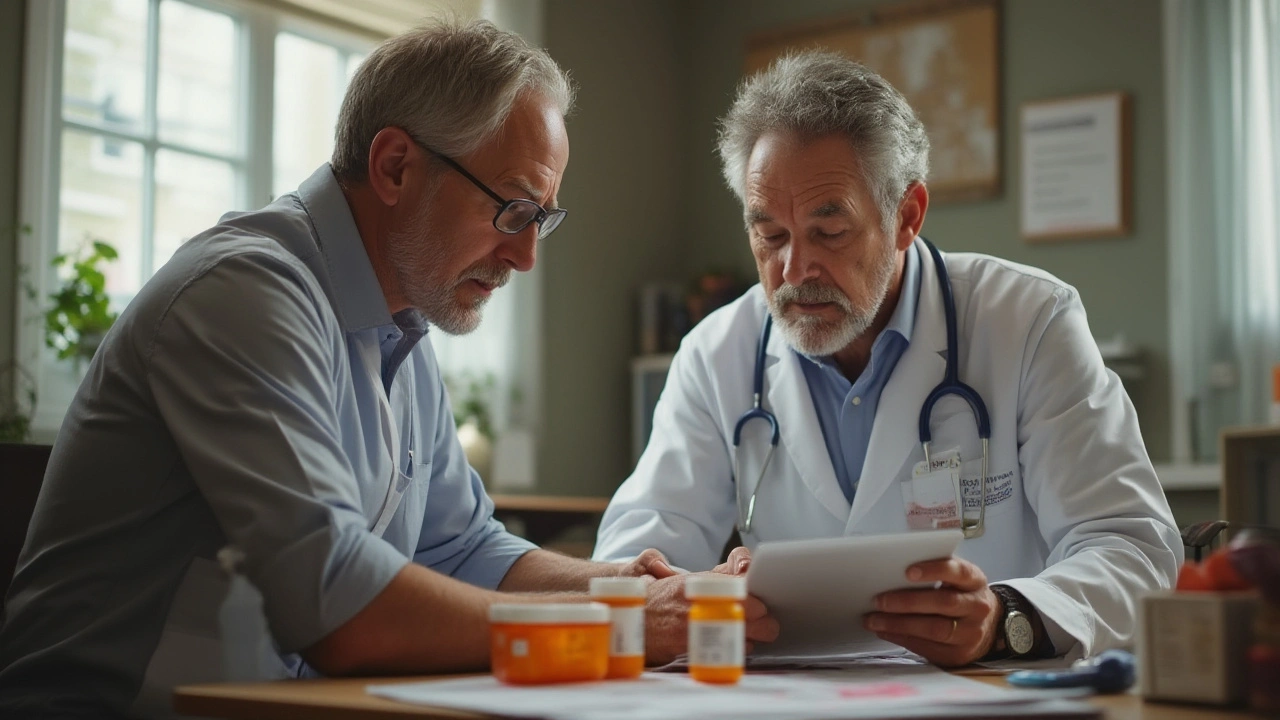Medication Interactions: What You Need to Know Right Now
Ever taken a couple of pills and wondered if they’re playing nice together? You’re not alone. Drug combos can boost benefits, but they can also cause nasty side effects. Knowing the basics saves you headaches, hospital trips, and a lot of worry.
Why Interactions Matter
When two medicines meet in your body, they can change how each other works. One drug might make the other stronger, weaker, or trigger a new reaction. This isn’t just a pharmacy thing—over‑the‑counter painkillers, herbal supplements, and even certain foods can stir up problems. A classic example is grapefruit juice, which can sky‑rocket the level of some cholesterol drugs, leading to toxicity.
Side effects often show up as dizziness, upset stomach, unusual bruising, or unexpected drowsiness. If you notice something odd after starting a new med, treat it as a red flag. It’s better to pause and double‑check than to push through and risk worse outcomes.
Simple Ways to Check for Interactions
1. Ask before you add anything. Whether it’s a new prescription, a vitamin, or a herbal tea, tell your doctor or pharmacist. They have tools that flag risky combos in seconds.
2. Use a reputable online checker. Websites like Drugs.com or Medscape let you type in two or more meds and instantly see warnings. Keep a list of everything you take—prescriptions, OTC, supplements—and run it regularly, especially after a new prescription.
3. Read the label. The fine print often lists common culprits (e.g., avoid alcohol, dairy, or certain antibiotics). If you’re unsure, a quick call to the pharmacy can clear things up.
4. Watch the timing. Some drugs don’t interact if taken hours apart. For instance, calcium supplements can block iron absorption if you take them together. Spacing doses by at least two hours can solve the issue.
5. Know your health conditions. Liver or kidney problems change how your body processes drugs. If you have chronic conditions, share that info—your doctor might adjust doses to keep things safe.
Lastly, keep an eye on how you feel. A mild rash, sudden headache, or a change in blood pressure could be your body’s way of telling you something’s off. Document the symptom, the meds you’re on, and reach out to a health professional promptly.
By staying curious and double‑checking, you keep your medication plan effective and low‑risk. A few minutes of effort now prevents bigger problems later. Stay safe, stay informed, and don’t let drug interactions catch you off guard.
How does famciclovir affect people living with diabetes? Get clear, concrete answers on medication safety, risks, and what doctors actually do when patients have both conditions.
